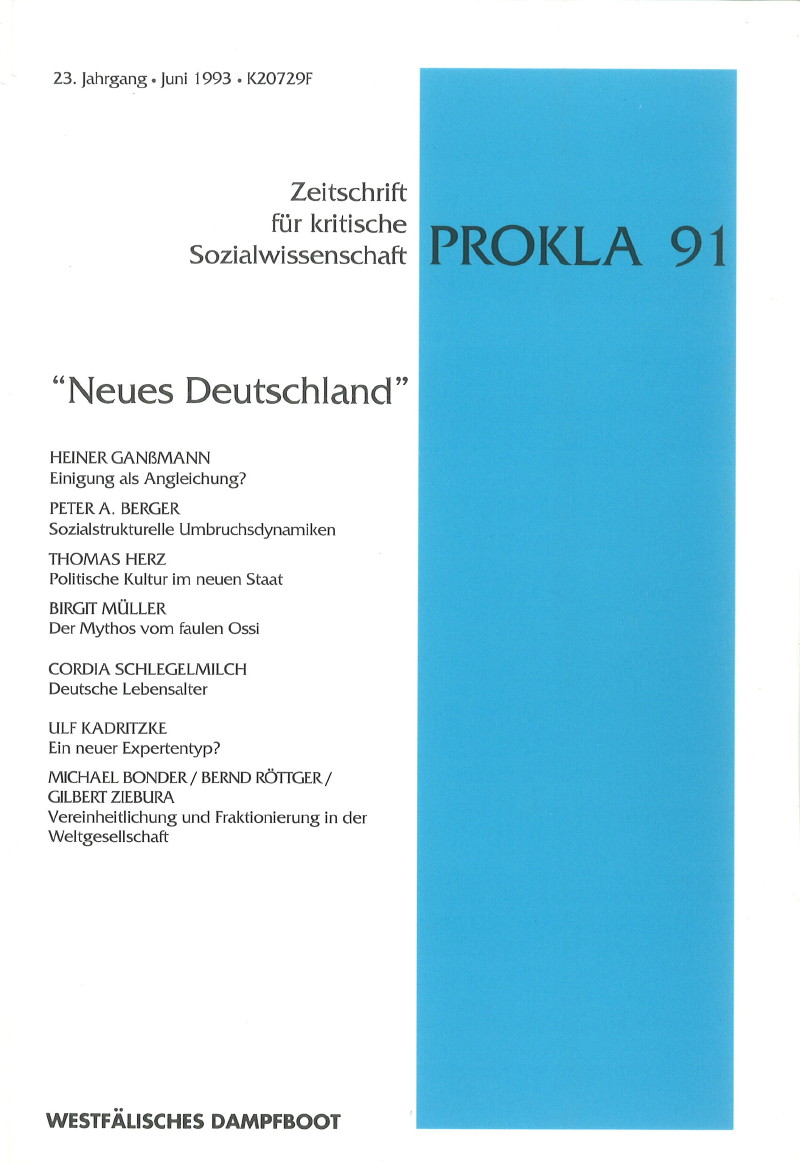Vereinheitlichung und Fraktionierung in der Weltgesellschaft. Kritik des globalen Institutionalimus
DOI:
https://doi.org/10.32387/prokla.v23i91.1040Schlagwörter:
Institutionalismus, Globalisierung, WeltgesellschaftAbstract
While the ideology of the new-world order suggesls that the universalization of the western capitalist model is in progress, in fact globalization is plagued by a dialectic of globalization and fractionalization. The ideological positivism of the common wisdom of 'international relations' is based on a policy in which the establishment of global rules of behavior within the OECD have been stylized as the world model. The rea!ity, however, is that massive tendencies towards fractionalization are present and indeed arise from within the world of the OECD. On the one hand, the horizontal divisions in the global community (differences in development between north and south or east and west) are solidifying. On the other hand, an increasing vertical polarization between rich and poor is developing within the nation states' social formations. If the high expectations of a New World Orderare to be rnet, a transforrnation of the basic structure of capitalism is necessary - not a universalization of the ancien regime.





